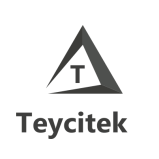Artificial Intelligence (AI) has been a buzzword for decades, and rightfully so. It has transformed several industries, from healthcare to finance, and has even led to the creation of new ones such as autonomous cars. However, the current state of AI is limited to what is called Narrow AI, which is AI designed to perform a specific task. The big question is, when will we get General AI? This article examines General AI’s current state, development hurdles, possibilities and limitations, future predictions, ethical considerations, impact on the workforce, and pros and cons.

Image Source: DepositPhotos
What is General AI?
An AI system called General AI or Strong AI can complete any intellectual task a human can. In science fiction movies, we often see AI that includes robots capable of conversing with humans, comprehending emotions, and executing intricate responsibilities. General AI is the ultimate goal of AI development, as it has the potential to revolutionize the world as we know it.
Understanding the Difference Between Narrow AI and General AI
Narrow AI, as mentioned earlier, is AI designed to perform a specific task. Siri, the virtual assistant on Apple devices, can perform tasks like checking the weather, setting reminders, and making calls. It does not have the capability to perform tasks outside of its predetermined function. In contrast, General AI is designed to perform any intellectual task that a human can do, making it a much more versatile and powerful tool.
Current State of AI Technology
The current state of AI technology is focused on developing and improving Narrow AI. This is because Narrow AI is easier to develop and implement than General AI. The most common types of Narrow AI are machine learning and deep learning. In the field of AI, machine learning teaches an algorithm to do a certain task and deep learning trains a neural network to gain insights from data and refine itself. These technologies have led to the creation of several AI applications, such as image recognition, natural language processing, and predictive analytics.
Hurdles in Developing General AI
Developing General AI is a much more challenging task than developing Narrow AI. General AI is a difficult feat because it requires a system capable of performing any intellectual task a human can do. One of the main hurdles in developing General AI is the lack of understanding of how the human brain works. The human brain is a complex system that we still do not fully understand. Another hurdle is the lack of computing power, as General AI requires significantly more computing power than Narrow AI.
Possibilities and Limitations of General AI
The possibilities of General AI are endless. It has the potential to revolutionize several industries, from healthcare to finance, and could even lead to the creation of new ones. General AI could also help solve some of the world’s most pressing problems, such as climate change and poverty. However, there are also limitations to General AI. One of the main limitations is the ethical considerations surrounding General AI. There are concerns about the potential misuse of General AI, such as the creation of autonomous weapons.
Predictions for the Future of General AI
The future of General AI is uncertain, but there are several predictions about its potential impact. Some experts believe that we will achieve General AI within the next few decades, while others believe that it may take much longer. There are also concerns about the impact of General AI on the workforce, as it has the potential to automate several jobs. However, some experts believe that General AI could also create new jobs and opportunities.
Ethical Considerations of General AI Development
The emergence of General AI raises numerous ethical concerns. One of the main concerns is the potential misuse of General AI, such as the creation of autonomous weapons. General AI has the ability to gather and analyze large quantities of information, which raises privacy concerns. There are also worries about how General AI might affect human decision-making, since it could potentially exhibit bias or make choices that don’t align with human values.
Impact of General AI on the Workforce
General AI has the potential to automate several jobs, which could have a significant impact on the workforce. However, some experts believe that General AI could also create new jobs and opportunities. For example, General AI could create jobs in the development and maintenance of AI systems. Additionally, General AI could help improve productivity and efficiency in several industries, which could lead to economic growth and job creation.
Pros and Cons of General AI
There are several pros and cons to developing General AI. One of the main pros is the potential to revolutionize several industries and solve some of the world’s most pressing problems. General AI could also help improve productivity and efficiency, which could lead to economic growth and job creation. However, there are also cons to developing General AI, such as the potential misuse of General AI and the impact on the workforce.
Conclusion
In conclusion, General AI is the ultimate goal of AI development, as it has the potential to revolutionize the world as we know it. However, developing General AI is a challenging task, and there are several hurdles that need to be overcome. Additionally, there are several ethical considerations surrounding General AI development, and the impact of General AI on the workforce is uncertain. Although there are challenges and uncertainties, the opportunities for General AI are limitless, making this an exhilarating time to work in AI.
AI is the future, and it is essential to stay informed about its development. If you want to learn more about AI and its potential impact, stay tuned for more articles on this topic.
